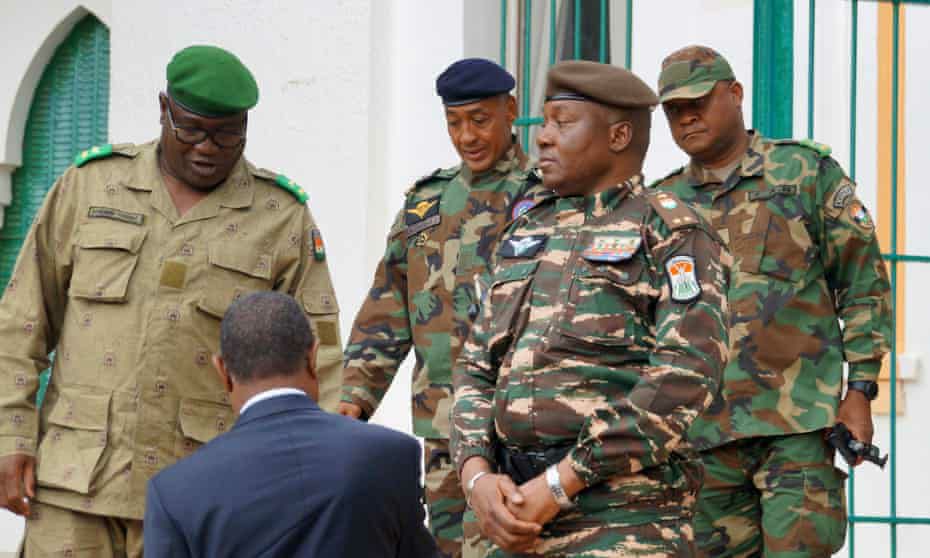The leader of the Niger Junta, General Abdourahmane Tchiani, has agreed to explore diplomatic dialogue to resolve the political impasse in the country.
Tchiani spoke on Saturday during a meeting with Nigeria’s intervention team comprising Islamic scholars led by the national chairman of Jamatul Izalatu Bida Waikamatu Sunnah, Bala Lau.
According to a statement personally signed by Lau on Sunday, the cleric told Tchiani that “the visit to Niger was to engage in constructive dialogue to encourage him and other military leaders behind the coup to embrace dialogue instead of war to resolve the crisis.”
Also read: ECOWAS orders immediate standby force against Niger junta
Responding, Tchiani said, “their doors were open to explore diplomacy and peace in resolving the matter.”
Tchiani expressed sadness that the Economic Community of West African States issued ultimatums without hearing the junta’s side of the matter.
It was learnt that Tchiani, according to Niger Republic’s Prime Minister, Ali Zeine, was ready for a dialogue, expressing hope that the talks with ECOWAS would take place in the next few days.
Zeine noted, ‘‘We have agreed and the leader of our country has given the green light for dialogue. They will now go back and inform the Nigerian President what they have heard from us. We hope in the coming days, they (ECOWAS) will come here to meet us to discuss how the sanctions imposed against us will be lifted.”
West African leaders on Thursday ramped up the rhetoric against Niger’s coup leaders, ordering the deployment of a regional standby force to restore democracy in the coup-hit country.
Niger Republic has been engulfed in political chaos since late last month, when President Mohamed Bazoum was ousted in a coup d’etat by the presidential guard.
ECOWAS responded days later by enacting sanctions and issuing an ultimatum to the ruling military junta: stand down within a week or face a potential military intervention.
That deadline came and went on Sunday, August 6, without any change in the political situation. ECOWAS leaders have said their preference is to find a diplomatic solution to the crisis and would send in troops as a last resort.

